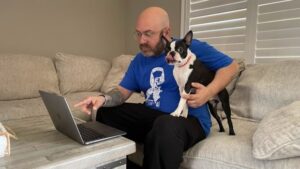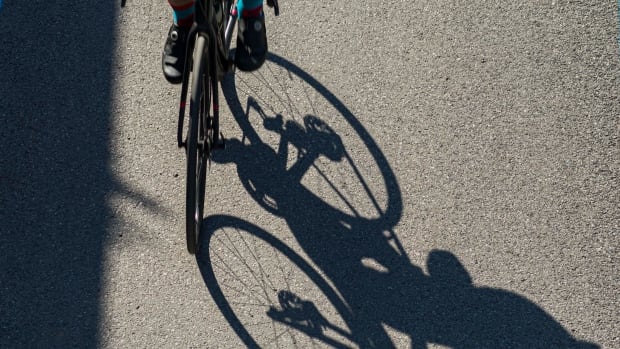
A Saskatoon defence lawyer says internal police records show officers are using the city’s bicycle bylaw ‘as a ruse’ to stop and search Indigenous men downtown.
The city’s police force has fought at two levels of court to have those records suppressed, including what a judge said about them in open court.
“Judge Monar Enweani made some very important findings,” Chris Murphy said.
“Upon initial inspection, their records appear to suggest that the vast majority of people who are ticketed under the bylaw are Indigenous and the tickets are primarily issued in the Central District [downtown].”
It all began when Murphy was defending an Indigenous man who had been stopped by police while riding a bicycle early in the morning on June 28, 2021.
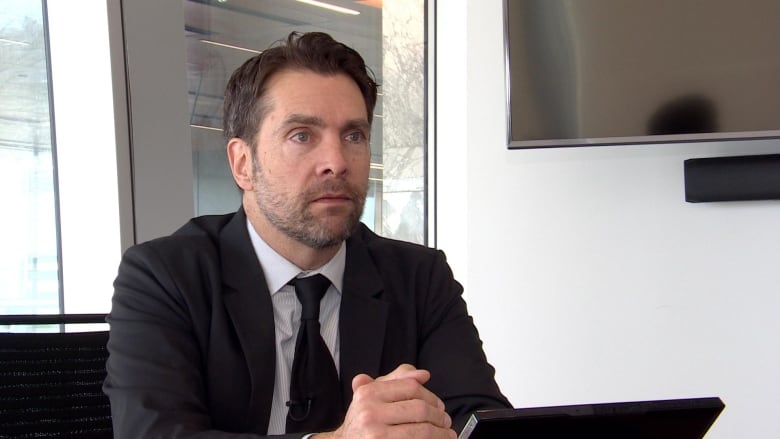
Murphy wanted to argue that the stop had violated the man’s Charter rights. He requested police data on who had received bicycle bylaw tickets in the city from January 2020 to December 2022
The police opposed the release of the records, citing privacy concerns, but Judge Monar Enweani ordered police to produce them.
On June 27, 2023, Murphy applied to admit the records at trial and cross-examine the officers. The very next day, June 28, the Crown stayed the criminal charges against his client — even though officers had recovered a sawed-off shotgun, knife, ammunition and cocaine.
This effectively ended the case before the judge could rule on whether the bicycle stop violated the man’s Charter rights, but Enweani did make some comments about the records, specifically about the vast majority of tickets going to Indigenous people.
Police then went to Court of King’s Bench seeking an order preventing Murphy from publicly discussing the records, including Enweani’s comments in court before the charges were stayed.
Earlier this month, Justice Naheed Bardai ruled that Murphy “could report on what transpired in open court, including providing the general description of the records set out in the judge’s decision,” he wrote in the March 20, 2024 ruling.
He added that “the case itself raises issues about the open court principle, racial profiling.”
Police chief Dave Haye declined an interview request from CBC.
“The records produced for the purpose of litigation in this matter have not been subjected to any research which would provide the Saskatoon Police Service or the courts context beyond the narrow purpose for the matter which was before the court,” he wrote in an email.
“It is relevant that none of the information was entered as evidence in any trial so members of the Saskatoon Police Service were denied the ability to respond to the trial judge’s opinion.”
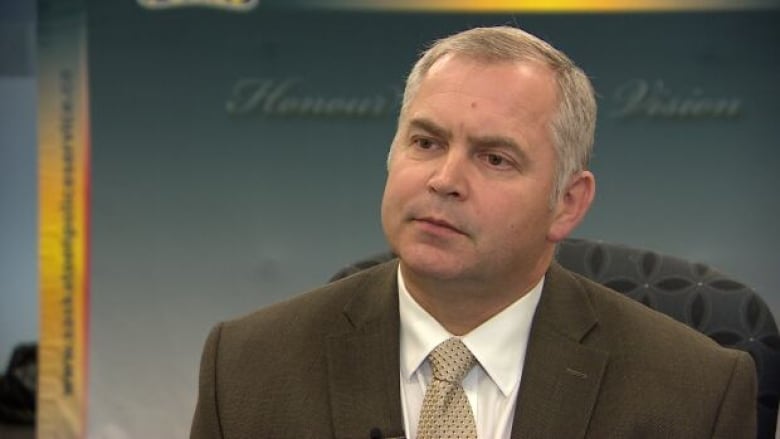
Pattern Recognition
Murphy said he already had suspicions about how police used the bylaw when he took on Tyson Baldhead’s case.
“This was the fifth case that I’ve had that starts off with a bicycle stop of an Indigenous man in the downtown core of Saskatoon by the Saskatoon police,” he said.
“So immediately my reaction, when I see this fifth file, is that this is no longer a coincidence.”
Bylaw No. 9705, The Bicycle Bylaw, requires riders to have working bells and horns, reflectors and headlights after sunset, and orders they stay off sidewalks. Police may issue $50 tickets to violators.
Murphy said two police officers stopped Baldhead at 5:09 a.m. CST when they saw him riding a bicycle on a 20th Street sidewalk.
While engaging him, the officers became suspicious that he had given them a fake name, Murphy said. When they probed further, he took off on foot and was caught almost immediately. They then determined he had outstanding arrest warrants.
They recovered a backpack, allegedly dropped by Baldhead, containing a sawed-off shotgun, a shotgun shell and a knife. They also found two shotgun shells and cocaine on Baldhead when he was searched.
Baldhead was charged with obstruction, failing to comply with conditions, providing a false name and weapons offences.
Murphy applied to have the seized items excluded as evidence at trial, citing the Charter provision protecting the right to be secure against unreasonable search or seizure.
‘Building a relationship of trust’: Murphy
Guns are an issue in Saskatoon.
A report to the Board of Police Commissioners in 2022 showed police responded to 168 incidents involving guns in 2021, more than the five-year average of 143.
“There will be a lot of people who are going to hear this story and say, ‘I don’t care if a guy gets stopped on a bike, if he had a gun,'” Murphy said.
“That’s not the point.”
When you are subject to these types of searches because of how you look, you develop this sense that the system is not just.– Scott Thompson, assistant professor of sociology, University of Saskatchewan
Murphy said the way police are using the bylaw is eroding trust between police and the Indigenous community.
“The Charter protects Mr. Baldhead, but it also protects all the other Indigenous kids who are growing up in the Central district in downtown Saskatoon who are being stopped and who don’t have a gun in their backpack,” he said.
“I suspect they’re being stopped at a much, much higher rate than white kids living in Nutana. And that’s the problem, is that we’re trying to build a relationship of trust.”
The Board of Police Commissioners, the independent body responsible for overseeing the Saskatoon Police Service, declined requests to speak to the issue.
“The Board has determined they will not comment on the decision at this time as there are many operational factors involved. The Police Service could provide more information on those operational factors,” the Board said in an email.
Mayor Charlie Clark, who is on the board, declined a separate interview request.
Searching the police: assistant prof.
Devon Napope grew up in Saskatoon and has a history with police that goes back to when he was a pre-teen. Now, at 36, he wants to know what the police know about him.
Napope began filing access to information requests last year to learn what police had learned about him over years of arrests and stops. The replies he’s gotten so far are heavily redacted.
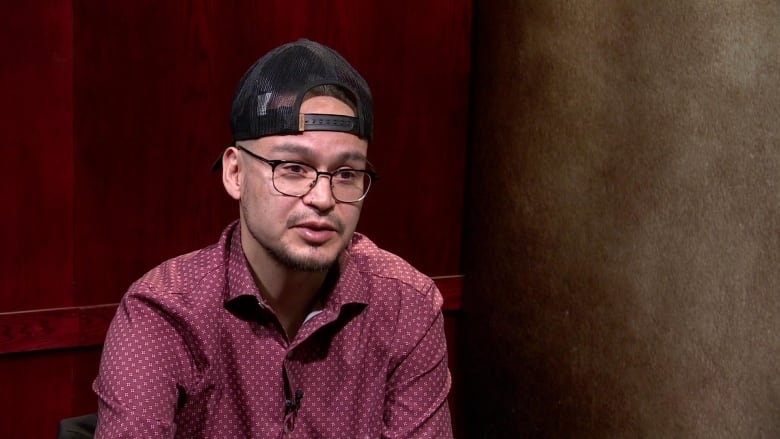
He said that his dealings with police have been defined by distrust.
“Any interaction with police when you’re Indigenous is always a struggle,” he said.
“It’s always based on mistrust, it’s always based on their judgment of you already.”
Napope is not surprised by how police are apparently using the bicycle bylaw.
“So the bicycle bylaw is just another excuse for them to harass Indigenous men and women in low-income communities,” he said.
“You’re always questioning yourself. ‘Why did you even stop me?’.”
‘This approach is broken’
Scott Thompson, an assistant professor of sociology at the University of Saskatchewan, said the importance of the case “really can’t be overstated.”
“A judge found that police working as part of this program chose how to act based on peoples’ race. Now when it comes out, instead of addressing the issue, the charges were dropped,” he said.
“Attempts were made to not allow these results to become known to the public.”
Thompson said this is a serious issue in the community.
“We also need to be clear that this particular program, and this approach, is broken.”
He said that these types of searches harm the entire community.
“When you are subject to these types of searches because of how you look, you develop this sense that the system is not just,” he said.
“When people are subject to these types of stops, they are less likely to participate with the police. They’re less likely to think that the system is just. They’re less likely to want to help these police officers in their communities. They really get the sense that they have to take justice, or look for justice themselves, outside of the system.”

